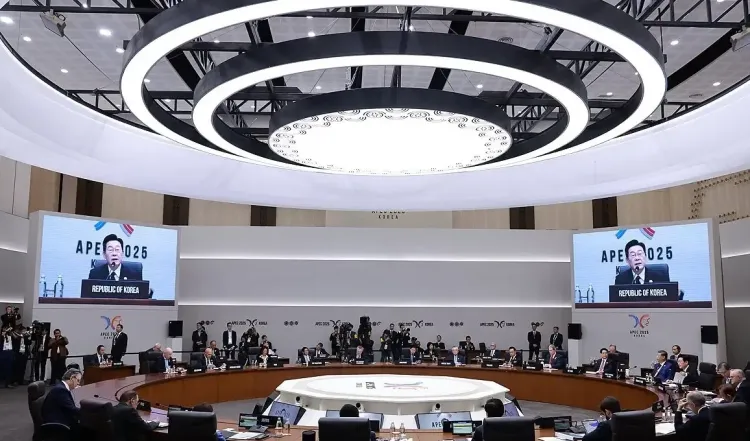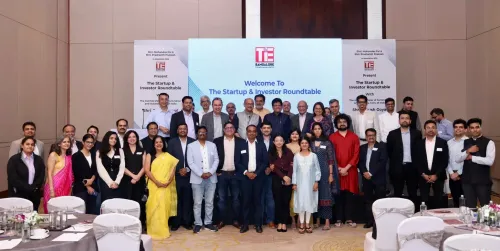How is APEC Embracing AI-Driven Transformations as Opportunities?

Synopsis
Key Takeaways
- Embrace AI: Recognizing the transformative potential of AI for economic growth.
- Collaborative Framework: Proposing joint efforts among APEC members to address demographic challenges.
- Infrastructure Investment: Expanding data centers and reforming regulations to boost AI innovation.
- Cultural Focus: Targeting the cultural and creative industries as new growth engines.
- Gyeongju Declaration: Summarizing key discussions and outcomes of the summit.
Seoul, Nov 1 (NationPress) South Korean President Lee Jae Myung on Saturday encouraged the member economies of the Asia-Pacific Economic Cooperation (APEC) to seize the significant transformations instigated by artificial intelligence (AI) as a chance to foster inclusive economic growth.
During the Retreat Session of the APEC summit held in the southeastern city of Gyeongju, Lee presented South Korea's initiative, dubbed "AI-Based Society for All." This was reported by the Yonhap news agency.
"The Republic of Korea envisions a global AI society in which individuals worldwide can equally reap the benefits of technological advancement, and we will consistently implement policies to actualize this fundamental vision," Lee expressed in his comments, referring to South Korea's official name. "We must transform the profound changes ushered in by AI into an opportunity."
Lee highlighted that South Korea is undergoing an "AI transformation" at the national level while nurturing an ecosystem conducive to AI innovation.
"We will enhance infrastructure, including expansive data centers, and initiate regulatory reforms to cultivate an environment where global enterprises can innovate freely," he stated.
Additionally, he called for collaborative efforts to tackle the challenges posed by a declining birth rate and an aging demographic, suggesting a collective framework for APEC countries.
"Demographic shifts present significant challenges that impact all sectors of society, from economic growth and the labor market to education and welfare, and cannot be solved via fragmented or isolated strategies," he added.
In response to the significant tides of AI and demographic change, he mentioned that South Korea is prioritizing the cultural and creative industries as a new engine for growth.
During the session, leaders are expected to endorse the "Gyeongju Declaration," which summarizes this year's discussions, alongside two documents addressing AI and demographic challenges, as stated by the office.
Lee will subsequently formally transfer the APEC chairmanship to Chinese President Xi Jinping, whose nation will host the upcoming summit.
After a group photo session, Lee was scheduled to conduct a press conference in his role as APEC chair to report on this year's key outcomes.









